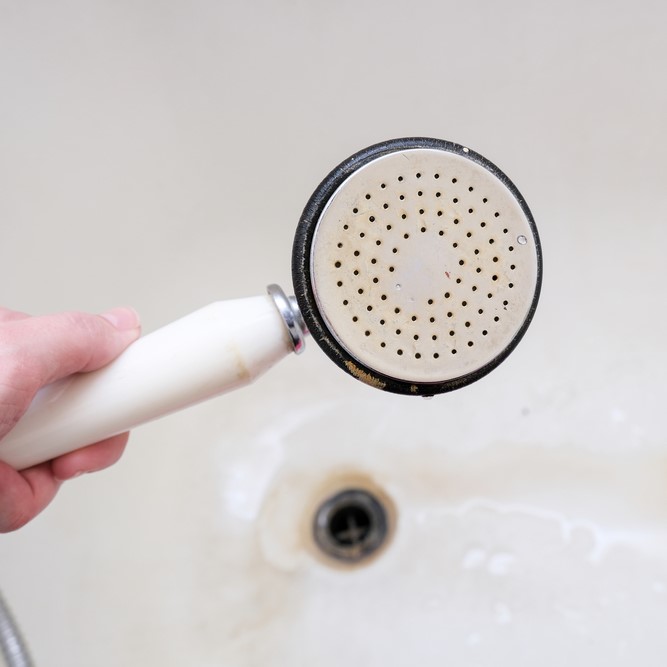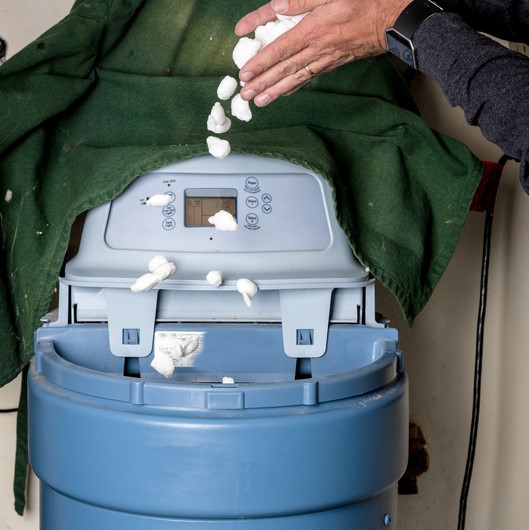How Does a Water Softener Work and Why Should I Care?
Do I really need a water softener? This question is at the top of the list for many homeowners when they need to update their water treatment system. The answer depends on your water quality. If you have hard water, a water softener is a wise investment. It will extend the life of your water-based appliances, reduce the risk of plumbing problems, and improve the health of your skin and hair.

Why should I care about hard water?
Hard water is full of minerals, like calcium and magnesium, which leave behind scaly build-up. If you have hard water, you will notice hardness scale clouding your glassware and making your faucets look dingy. It doesn’t just look bad. Scaling corrodes metal, clogs pipes and showerheads, and damages water-based appliances from dishwashers to water heaters.
Bathing in hard water is bad for your skin and hair. Hardness minerals interact poorly with shampoos and detergents, causing them to leave behind soap scum. This soap scum often clogs your pores leading to blackheads, whiteheads, and acne. It also builds up in your hair, making it feel tough and look dull.
What does a water softener do, and how does it work?
A water softener removes hardness minerals to eliminate the problems caused by hard water. If you have a water softener, your water-based appliances, showerheads, and faucets will last longer. You also won’t have to worry about low water pressure and other plumbing problems caused by scale build-up. Your skin and hair will be healthier.
Water softeners (a.k.a. ion exchange water softeners) remove hardness minerals through an ion exchange process. The system pushes hard water through a tank filled with resin beads that are charged by sodium or potassium ions. As hard water passes through the tank, the hardness minerals are attracted to the resin beads. The hardness minerals stay behind in the tank, swapping places with the sodium or potassium ions.
 Along with the resin tank, a water softener has a brine tank. You have to add salt to the brine tank as needed. The water softener system uses brine water from this tank to recharge the resin beads. If you want to learn more about the science behind ion exchange water softeners, check out this post!
Along with the resin tank, a water softener has a brine tank. You have to add salt to the brine tank as needed. The water softener system uses brine water from this tank to recharge the resin beads. If you want to learn more about the science behind ion exchange water softeners, check out this post!
Salt-free water conditioners are an alternative to ion exchange water softeners. Homeowners looking to reduce their water usage are attracted to this option because it uses less water. A salt-free water conditioner treats hard water by chemically transforming magnesium and calcium instead of removing these hardness minerals. This process makes the minerals less likely to cling to surfaces. Despite the water savings, water conditioners are less popular than water softeners because they are less effective.
Around 90% of American households have hard water. If your home does, an ion exchange water softener is a smart solution. It’s a long-term investment that will noticeably improve your water quality every day. If this post has raised more questions for you about this water treatment, check out our Frequently Asked Questions About Water Softeners! Or give the experts on our team at Tri-Florida Water Treatment a call! We work with residents throughout the Lakeland, Florida, area. We are always happy to meet a new neighbor and answer questions about improving your water quality.
